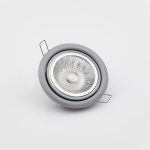
Introduction
The concept of connectivity has transcended traditional boundaries due to innovative solutions by powerful smart sensors that have enabled transformative connectivity across a range of industries. Smart sensor solutions involve integrating various devices, systems, and processes to create a more interconnected and intelligent world. This article presents the multifaceted role of smart sensor solutions in driving transformative connectivity, highlighting their benefits and applications in various sectors.
What are Smart Sensors?
Smart sensors are advanced sensing devices that incorporate various technologies to gather and transmit data in a more intelligent and efficient manner. These sensors offer real-time data and analysis and have the ability to merge with sensor fusion technology – leveraging the individual sensors’ strengths by combining their unique capabilities. They are critical in the development of IoT and contribute to making systems and devices more intelligent and responsive to their surroundings. Depending on the sensor types and applications, smart sensors are efficient and versatile and can be applied in various domains, including industrial automation, healthcare, environmental monitoring, smart cities, and consumer electronics, among others.
Understanding Smart Sensors Solutions
Smart sensor solutions, a bedrock of transformative connectivity, refer to a category of sensor technologies that incorporate advanced features and capabilities to enhance their functionality and usability in various applications. These sensors are designed to collect data from the physical world, process it, and transmit valuable information to other devices or systems, enabling informed decision-making and automation. Whether it’s temperature, humidity, motion, or even chemical changes, smart sensors capture a wide array of information accurately and in real-time.
Exploring the Real-World Benefits of Smart Sensor Solutions
Smart sensor solutions offer unprecedented benefits to connectivity, enabling intelligent decision-making. Some of the multifaceted benefits of smart sensor solutions include:
- Real-time Data: Smart sensors provide real-time data, enabling quick decision-making and responsiveness in various domains.
- Improved Efficiency: Automation and optimisation driven by smart sensors lead to increased efficiency, reduced resource consumption, and cost savings.
- Predictive Capabilities: In industrial settings, smart sensors enable predictive maintenance, preventing costly equipment breakdowns and downtime.
- Cost Reduction: Smart sensors can help organisations optimise their operations, reduce waste, and cut unnecessary expenses–leading to cost savings over time.
- Remote Monitoring and Control: Smart sensors are accessed remotely, allowing for monitoring and control from anywhere with an internet connection, making them valuable for businesses with distributed assets or remote locations.
- Personalisation: In the consumer space, smart sensors enable personalised experiences, enhancing user satisfaction.
- Environmental Benefits: Smart sensor-driven solutions promote sustainability by optimising resource usage and reducing waste.
Unveiling the Critical Role of Smart Sensor Solutions in Transformative Connectivity – Use Cases
Smart sensor solutions are significant in transformative connectivity – enhancing our daily lives, improving efficiency, and driving innovation. They contribute to various aspects across multiple industries, such as:
Facilitating Connectivity in Smart Homes
Smart sensors are integrated into various home devices and systems, gathering data about environmental conditions, occupancy, and user preferences. The resultant data is then used to optimise energy consumption, enhance security, and provide a personalised experience. The seamless smart sensors-based connectivity has made smart homes a reality, improving convenience and energy efficiency.
Smart Sensors in Industrial Automation
Connectivity in industrial settings is vital for achieving higher productivity, cost savings, and competitive advantages. In the industrial sector, smart sensor solutions are at the forefront of the Industry 4.0 revolution. These sensors find applications in manufacturing plants and logistics operations to monitor machinery health, track inventory, and optimise production processes. The real-time data from the smart sensors enables predictive maintenance, reduces downtime, and improves overall efficiency.
Transforming Healthcare with Smart Sensors Technology
Smart sensor solutions are also transforming healthcare, providing healthcare professionals with valuable data for remote patient monitoring, early detection of health issues, and reducing hospital readmissions. Additionally, smart sensors are used in medical equipment, ensuring precise and continuous monitoring of patients in critical care settings.
Smart Cities and Urban Connectivity
Smart sensor solutions are the backbone of smart urban initiatives–facilitating traffic management, waste management, and environmental monitoring. These sensors help improve traffic flow, reduce pollution, and enhance the overall quality of life in urban areas. Smart cities leverage connectivity to optimise resource allocation and improve the well-being of their residents.
Boosting Security and Surveillance
Security and surveillance systems heavily rely on smart sensor solutions. Intrusion detection sensors, motion detectors, and facial recognition cameras are just a few examples. These sensors enhance security by detecting unauthorised access and providing real-time alerts to authorities or homeowners. In addition, they can be integrated with artificial intelligence (AI) to improve the accuracy of threat detection.
Enhancing Agriculture through Connectivity
Agriculture has also benefited from the integration of smart sensor solutions. Connectivity in agriculture improves food production efficiency and contributes to sustainability. Smart sensors are utilised to monitor soil conditions, weather patterns, and crop health. Farmers are facilitated to make informed decisions about irrigation, fertilization, and pest control by collecting and analysing data in real-time, ultimately increasing crop yields and reducing resource wastage.
Wrap Up
Smart sensor solutions are undoubtedly driving transformative connectivity across various domains–from smart homes and industrial automation to healthcare and smart cities. These sensors enable real-time data collection, improve efficiency, and enhance user experiences. In the near future, the role of smart sensor solutions in connectivity will become more significant, shaping the future of the modern interconnected world.





















